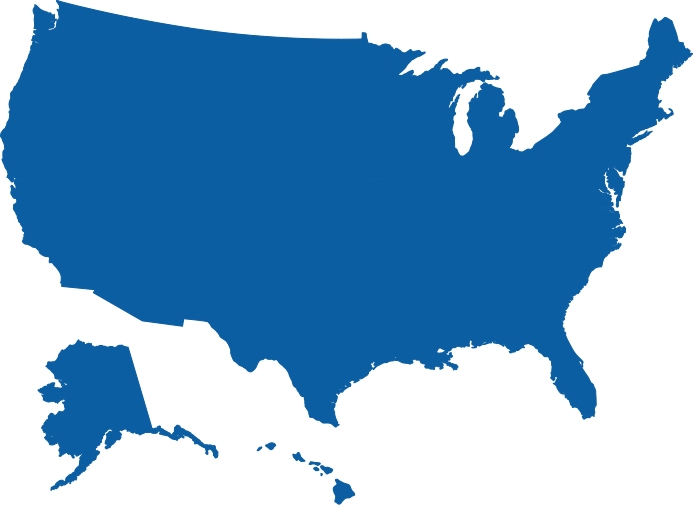Group Medical Stop Loss Insurance by 
BCS Stop Loss insurance: Flexible, specific and aggregate coverage, insurance, reinsurance, risk share, and underwriting-only, stop loss solutions. Click below for a free consultation.
Let's Start The Conversation!
Shielding Your Business from Stop Loss Surprises
Stop Loss Insurance is an essential safeguard for self-funded employers, providing protection against the financial impact of high-cost medical claims. By capping the amount an employer has to pay for individual or aggregate claims, it ensures that unexpected healthcare expenses don’t disrupt the company’s financial stability. This coverage offers flexibility in plan design and budget predictability, making it easier for businesses to manage their health benefits while protecting themselves from potentially catastrophic costs.
Stop Loss Insurance provides several key benefits for self-funded employers looking to protect their financial stability:
Protection Against Catastrophic Claims
Stop Loss Insurance mitigates the financial risk associated with high-cost claims, such as those resulting from severe medical conditions or accidents. By setting a limit on the amount an employer has to pay for individual or aggregate claims, it prevents large and unexpected medical expenses from threatening the financial health of a company.
Budget Predictability
With Stop Loss coverage, employers gain greater predictability over their healthcare costs. By capping the amount they are responsible for, it helps employers maintain more stable and manageable healthcare budgets year over year, even when faced with fluctuating or rising medical claims.
Flexibility in Plan Design
Employers can customize their Stop Loss coverage to suit their specific needs, choosing from various deductible levels, coverage types (specific and aggregate), and additional options like aggregating specific deductibles. This flexibility allows them to optimize their protection based on their risk tolerance and financial capacity.
These benefits make Stop Loss Insurance a crucial tool for self-funded employers to manage the financial risks associated with providing health benefits to their employees.
The BCS Advantage
Experience
Rated A (Excellent)
by A.M. Best

Licensed in all 50 states
Lives Covered

What are the Key Features of BCS Stop Loss Insurance?BCS's Stop Loss Insurance provides comprehensive protection for self-funded medical plans against large and unpredictable claims. Their offerings include both Specific Stop Loss and Aggregate Stop Loss coverage options:
Additionally, BCS offers reinsurance options to help employers manage and mitigate risk. They also have specific solutions to address the high costs of emerging treatments like gene therapy, ensuring that employers are safeguarded against potentially catastrophic expenses associated with these high-cost claims.
BCS customers benefit from access to the BCS RiskNavigator platform and various cost containment solutions, which include partnerships with specialty vendors for clinical intervention and cost-saving initiatives. This integrated approach helps manage exposure to high-cost claims effectively.
For plan sponsors, BCS highlights key considerations such as understanding the impact of claim trend leveraging, regularly reviewing and adjusting deductibles, and utilizing Aggregating Specific Deductibles to optimize costs. They also emphasize the importance of preparing for the financial implications of new high-cost treatments like gene therapies |
|
| Get A Free Cost Analysis |
Coverage Options
Let's Start The Conversation |
 |
Stop Loss Insurance FAQs
-
What are the types of stop-loss insurance available?
AnswerThere are two primary types of stop-loss insurance:
- Specific (or Individual) Stop-Loss: Protects against high claims from a single individual, kicking in when an employee’s medical expenses exceed a specified amount.
- Aggregate Stop-Loss: Provides protection when the total claims for all covered employees exceed a specified level, based on the employer's expected claims for the plan year.
-
Who should consider stop-loss insurance?
AnswerStop-loss insurance is typically used by self-funded (or self-insured) employers, especially those concerned about their ability to cover unexpectedly high claims. It is particularly beneficial for small to mid-sized businesses looking to mitigate financial risks associated with high-cost healthcare claims. -
How are the coverage thresholds or deductibles determined?
AnswerThe deductible levels are determined based on factors such as the size of the group, past claims experience, and the financial risk tolerance of the employer. Employers can work with brokers or stop-loss carriers to set appropriate thresholds that balance risk and cost. -
Is stop-loss insurance regulated the same as traditional health insurance?
AnswerNo, stop-loss insurance is not regulated like traditional health insurance. It is considered a form of reinsurance for self-funded plans and is regulated at the state level, where regulations can vary. This means it does not have to comply with the same mandates as traditional health insurance, such as covering certain essential health benefits. -
What is a lasering provision in stop-loss insurance?
AnswerA lasering provision allows insurers to set higher specific deductibles for certain high-risk individuals or conditions within the group. This means the employer would assume more risk for those individuals before the stop-loss coverage kicks in, potentially reducing overall premiums. -
How does stop-loss insurance impact overall health plan costs?
AnswerWhile stop-loss insurance adds an additional layer of protection and stability, it also adds a cost to the overall health plan. However, by limiting the employer’s liability for high-cost claims, it can make self-funding a more predictable and viable option. Employers must weigh the cost of stop-loss premiums against the potential savings and financial risk mitigation it provides. -
How do stop-loss insurance reimbursements work?
AnswerWhen a claim exceeds the specified deductible, the employer pays the healthcare provider directly as usual. The employer then submits the claim to the stop-loss insurer for reimbursement of the amount above the deductible. Reimbursement timelines and requirements vary by policy, so it's essential to understand the process outlined in the contract. -
Can stop-loss insurance be customized to fit specific needs?
AnswerYes, stop-loss insurance policies can be tailored to meet the specific needs and risk tolerance of the employer. Employers can choose different deductible levels, coverage limits, and contract terms, such as run-in or run-out provisions, to best match their financial strategy and claims experience. Working with a knowledgeable broker or consultant can help design a plan that aligns with the employer’s objectives.